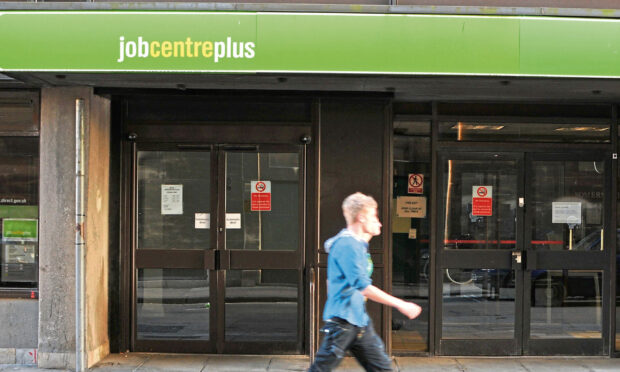The Scottish job market is in a state of “suspended animation”, a leading think-tank said yesterday.
But the Fraser of Allander (FoA) Institute also warned the true picture for the number of people in work north of the border was likely to be worse than official payroll figures showing a fall of 65,000 year-on-year.
“There is some evidence that employment is down by more than what is being suggested by headline data,” FoA said, highlighting in excess of 360,000 jobs on furlough in Scotland at the end of January.
The HM Revenue and Customs payroll figures also showed a 5.57% fall in north-east employment during the year to the end of February, more than double the 2.7% drop seen across Scotland.
Contraction of the oil and gas industry workforce in and around Aberdeen was driven not just by the general impact of the coronavirus outbreak but also a collapse in crude prices last spring.
Stuart McIntyre, head of research, FoA, said: “The Scottish labour market remains in a state of suspended animation, certainly in comparison to the scale of the economic shock represented by the pandemic, with little change in the headline measures of employment and unemployment over the year to the end of February. A key reason for this is the furlough scheme.”
FoA said the number of people claiming unemployment related benefits in Scotland was up nearly 90% from a year ago, an increase of more than 100,000 people.
Meanwhile, Office for National Statistics (ONS) data published yesterday showed the proportion of people in work in Scotland has fallen slightly, to just over 74%.
ONS said that from November 2020 to January 2021, the Scottish employment rate dropped to 74.3% – down 0.6%, compared with the previous three months, and below the UK rate of 75%.
But Scottish unemployment was below the UK rate of 5%, at 4.1%, after a slight fall in the number of people out of work to 114,000.
Business, Fair Work and Skills Minister Jamie Hepburn said: “These figures reflect some of the challenges faced in Scotland’s labour market to date, but they do not reflect the full impact of coronavirus or the outlook for employment as the Job Retention Scheme continues to help support jobs.”
The register of job-seeking claimants in Aberdeen now stands at 9,302 people, which Ruth Rothnie, service delivery manager at Jobcentre Plus in the Granite City, said represented an increase of 5,158 on a year ago, or a 124% rise.
She added: “Within the total figure, 18-24-year-olds represent a current claimant count of 1575. This represents an increase of 881, a 127% rise.”
Jobcentre figures from the north revealed 20,400 people claiming Universal Credit (UC) on February 11, up from 19,915 about a month before.
Laura MacMillan, employer and partnership adviser at the Department for Work and Pensions (DWP) in the Highlands, said DWP’s team in the north were currently busy trying to fill about 200 new roles for consulting, technology and outsourcing services giant Capgemini.
The recruitment drive was announced last autumn after Capgemini, which has operations in Inverness and Nairn, won a five-year contract to run a Ministry of Defence IT service centre.
